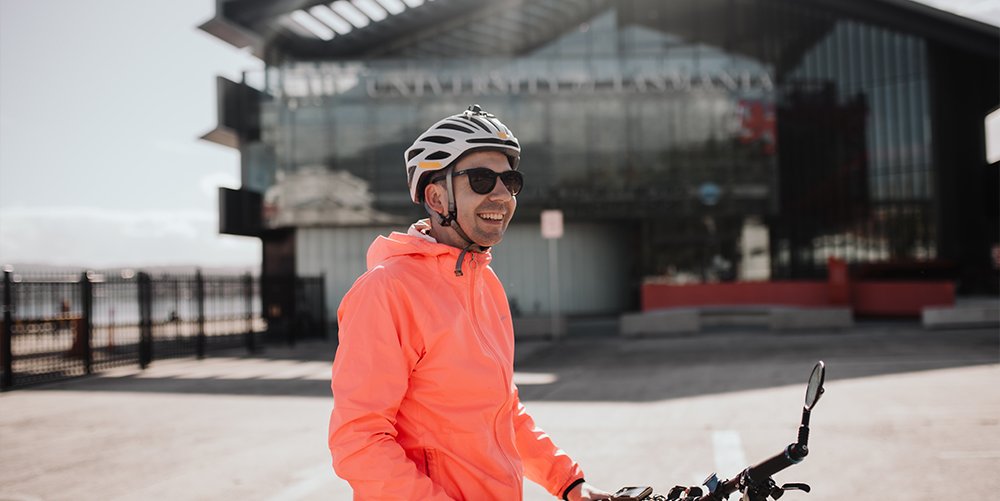Rayne van den Berg
"Imagine wind farms, renewable-diesel, carbon projects, engineered timber products and biodiversity credits. It’s about so much more than cutting down trees – it’s about a truly renewable resource."
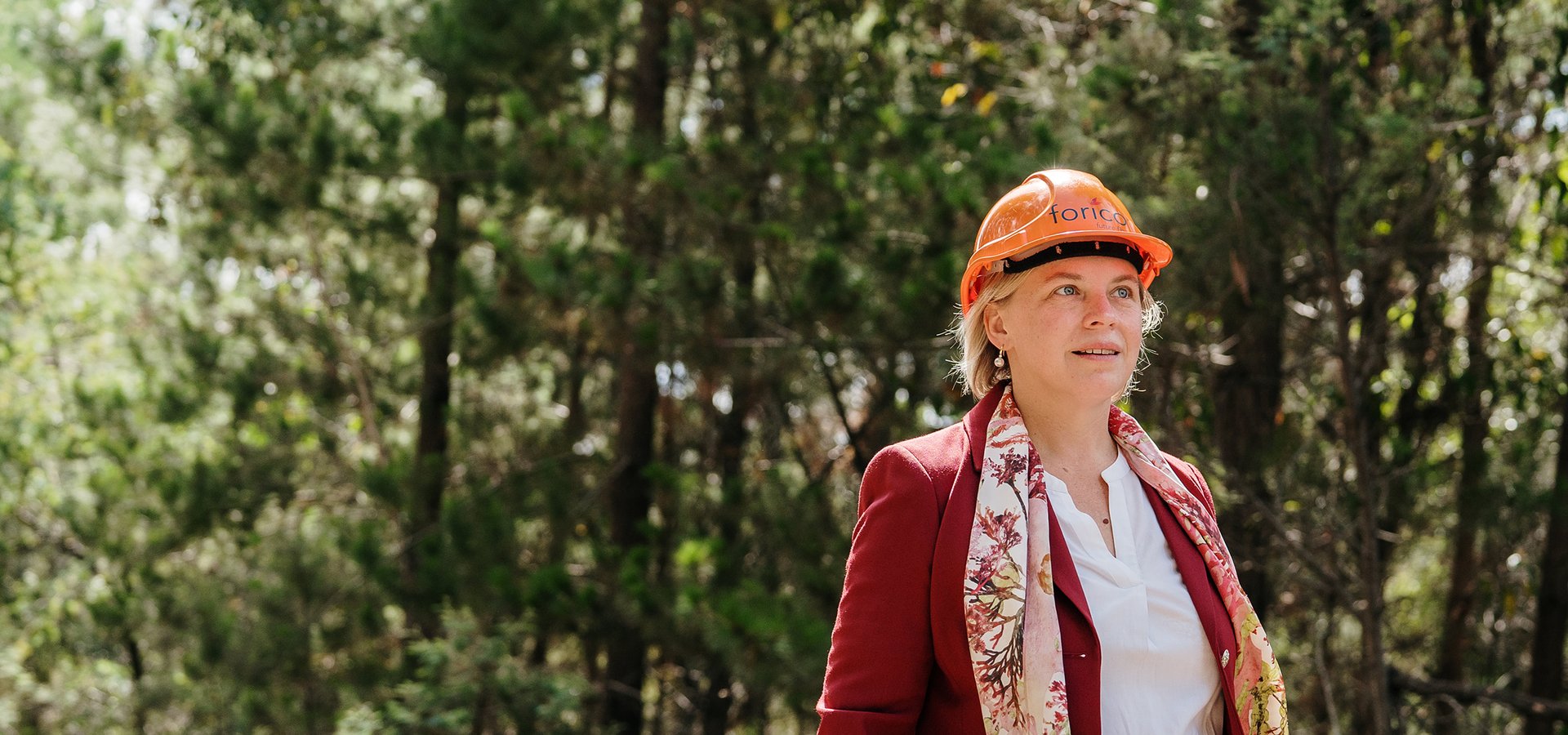
"If Tasmania wants to take a leadership position, we really have to own this brand. We talk about the ‘Gunns to Forico’ story over the last eight years. What could the next eight years look like?"
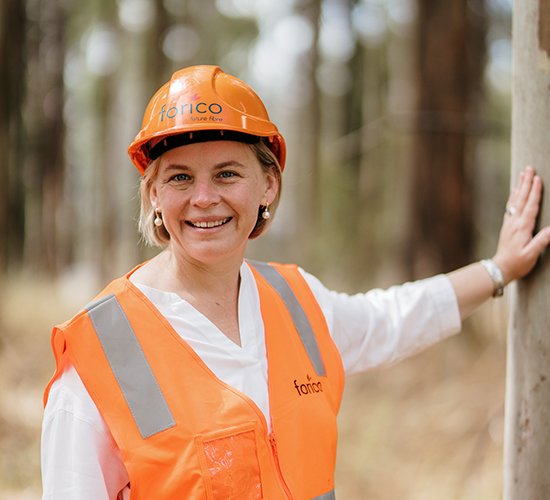
People move to Tasmania for a lot of reasons. Rayne van den Berg and her husband wanted to change things, first for themselves.
People move to Tasmania for a lot of reasons. Rayne van den Berg and her husband wanted to change things, first for themselves.
“In Melbourne, we couldn’t afford the lifestyle we wanted,” she says. At the time, she was a chartered accountant and chief financial officer (CFO) for a wine company. She had grown up in Queensland and had lived and worked in Europe and Japan, so Rayne was accustomed to adventure.
What she didn’t expect, in her move to Tasmania, was the opportunity to lead the world in natural capital accounting – to also change things for others, and the planet.
Rayne’s first role was working for Petuna, including a stint as their Acting CFO . She had a child. Then, three years after her arrival, she was appointed CFO at a company called Forico.
Forico is not yet a name many Tasmanians know, though they might recognise its predecessor: Gunns Limited. Asset manager New Forests acquired the distressed Gunns estate in 2014 and quietly built a new way of managing plantations with a Tasmanian company called Forico.
“I’m not sure he remembers this, but when I first got recruited the chair – our fund manager – he said, ‘We’re doing this little project on natural capital. Have a go. But if you’re going to do it, make it the best in the world.’”
It is a deeply Tasmanian story, to go from “forestry wars” and tales of environmental devastation to aspiring to be the best in the world at valuing and protecting non-financial assets like carbon and biodiversity.
Rayne was also the first female executive who wasn’t from the forestry industry. It wasn’t going to be an easy job. She had to do what was expected of her, as a traditional CFO, but she also had the opportunity to create something with the Forico team that the world had never seen, using tools that did not yet exist.
“I had full Board and Executive support to be inventive,” she says. “Nine months later we presented our first natural capital report to the board.”
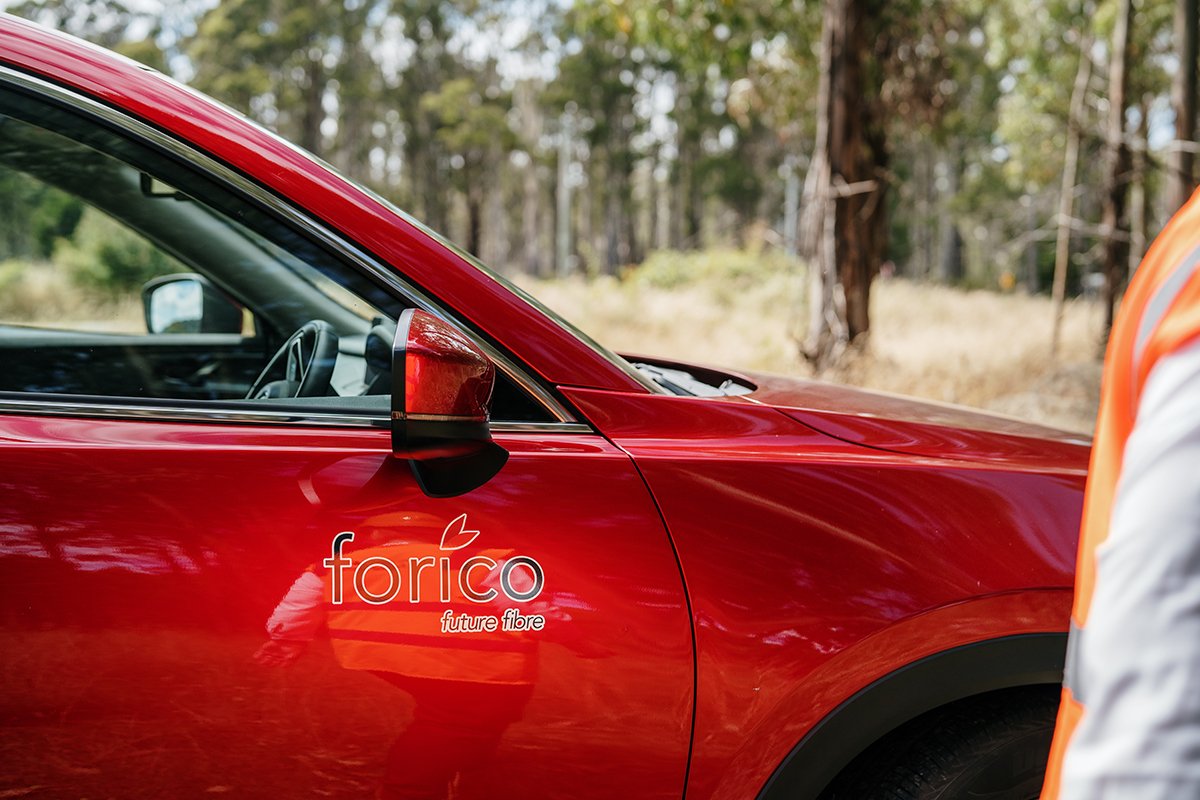
It was a new way to understand the forestry business, putting a value on everything from sequestered carbon to habitat and water flows.
“The board loved it,” she says. “Some said make it public. Others said, this hasn’t been done before and it’s never been tested. Will this transparency become a stick people can use to whack us? If you’re putting yourself out there, you’re inviting criticism.”
So far, there has been only supportive feedback and praise even from environmental groups. Rayne and the Forico team have created a powerful economic incentive for investing in environmental conservation and sustainability.
“The forestry wars are still a part of the living memory, here in the company and across Tasmania,” she says. “But I see it from a different perspective. I see all these people doing amazing things for nature, yet they don’t talk about it. Every Tasmanian and every Australian should understand the transformation of this business and should be inspired by it. So Tasmanian.”
In Montreal, at a UN conference on biodiversity where Rayne presented Forico’s reports and told the Forico story, strangers approached her with questions and with praise. “They had heard of us and they had heard about what we’re doing in Tasmania. I said what I always say. Don’t just read the reports. Come and see what we’re doing.”
Sustainability can be a buzzword, something the marketing and communications people say. Not at Forico.
“Sustainability sits with my portfolio as CFO, with pride,” says Rayne. “If businesses are truly going to be sustainable, it can’t just be outsourced to their PR teams. Sustainability and wanting to do the right thing for planet, people, and shared prosperity is embedded right across the business: only through reporting and measuring, and setting targets, telling people where we’ve been and where we’re going… can this work.”
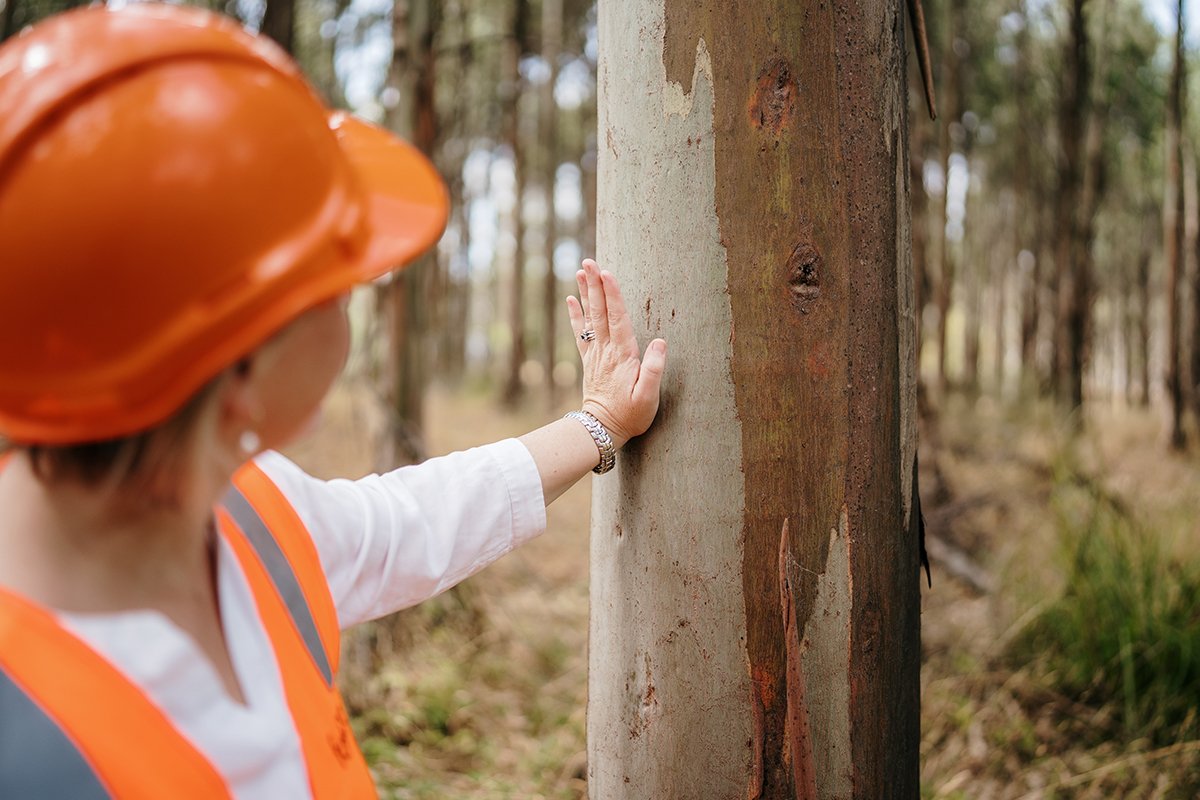
If businesses are truly going to be sustainable, it can’t just be outsourced to their PR teams. Sustainability and wanting to do the right thing for planet, people, and shared prosperity is embedded right across the business: only through reporting and measuring, and setting targets, telling people where we’ve been and where we’re going… can this work.
Forico has 450 supply chain partners, and measuring their emissions is a part of Forico’s efforts. What the industry calls scope 3 emissions, those created by suppliers and customers, are notoriously difficult to measure and reduce for most of the world. As Tasmanians we have enormous potential to share a common climate positive story, thanks to our renewable electricity. It has a network effect. The more businesses on a path to reducing emissions, the better, cheaper, and healthier it is for everyone.
“We all have a lot of changes to make and with urgency,” says Rayne. “Yes, we plant trees, but we also consume a lot of diesel in our supply chains. We don’t just see ourselves as a forestry company anymore. Imagine wind farms, renewable-diesel, carbon projects, engineered timber products and biodiversity credits. It’s about so much more than cutting down trees – it’s about a truly renewable resource.”
And about so much more than profiting from the emerging carbon market. Rayne is working on ways to invest in and measure the impact of other Tasmanian Positive projects.
“We are different from the rest of the world, because of this head start we have here in Tasmania with our enviable renewable energy and nature conservation areas,” she says. “But we are just starting. If Tasmania wants to take a leadership position, we really have to own this brand. We talk about the ‘Gunns to Forico’ story over the last eight years. What could the next eight years look like?”
As Rayne speaks, she looks out over a stunning landscape of hills and native Tasmanian trees.
“So much is changing and can change for good. There may soon be a price on nature where landholders are rewarded for responsible Natural Capital custodianship for the greater societal good. Yet we will still need fibre and food. How do we make balanced and truly long-term sustainable decisions for Tasmania? Imagine if being Tasmanian Positive meant better outcomes for people, planet, and shared prosperity? That’s the Tasmania I want to be a part of.”

We worked with northern Tasmanian photographer Nick Hanson for this Tasmanian story.
Read about more Tasmanians
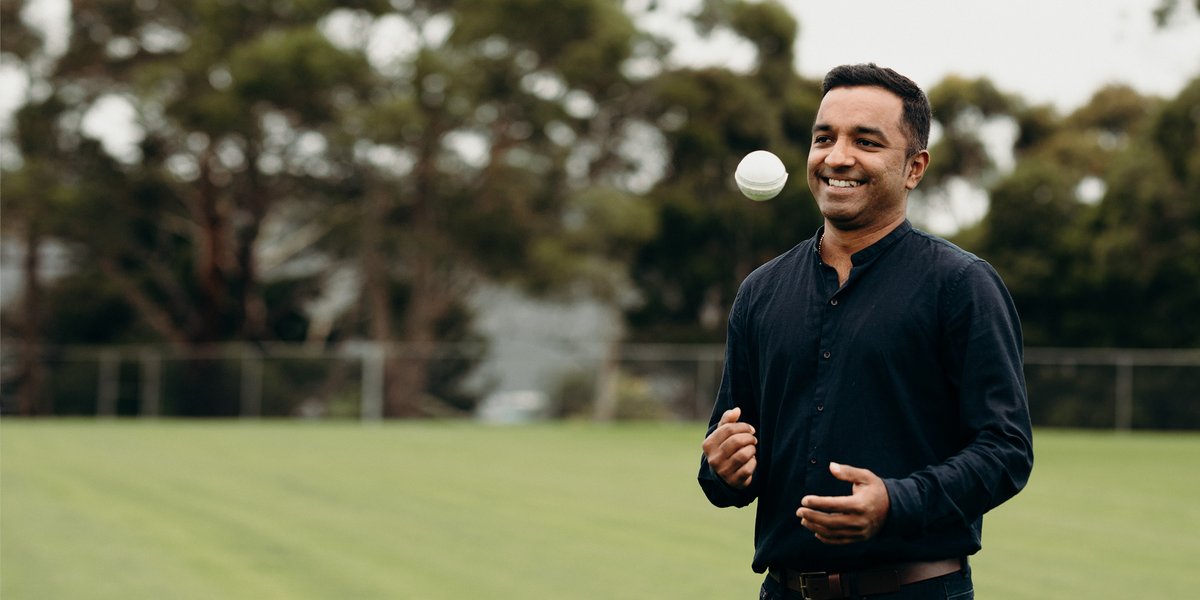
Prajit Parameswar
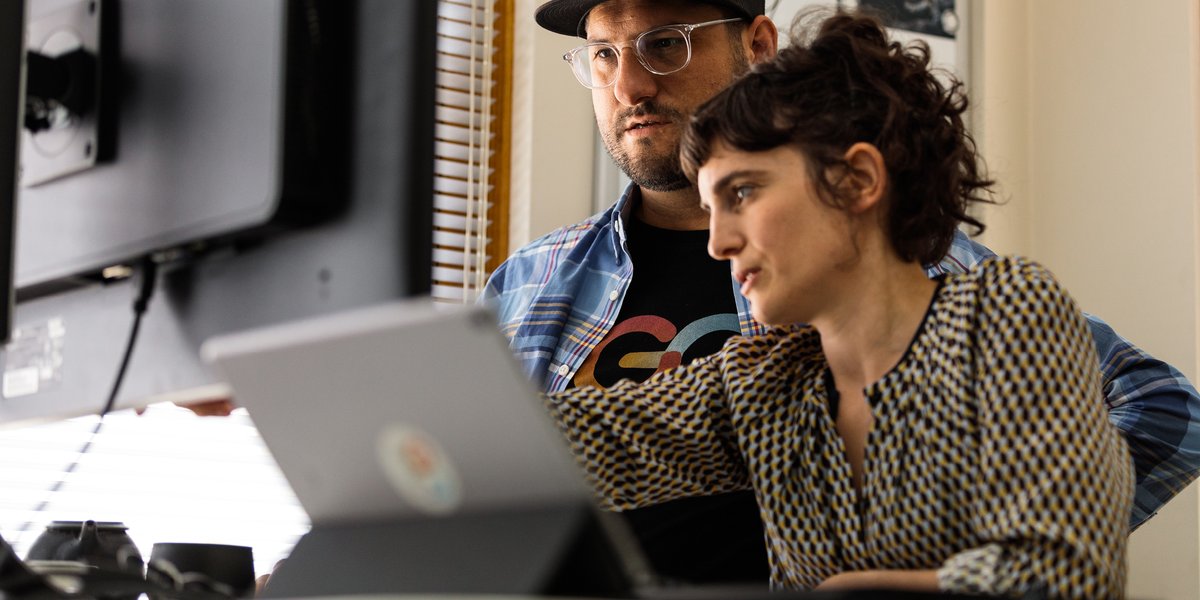
Roxane & Alex Bandini-Maeder
